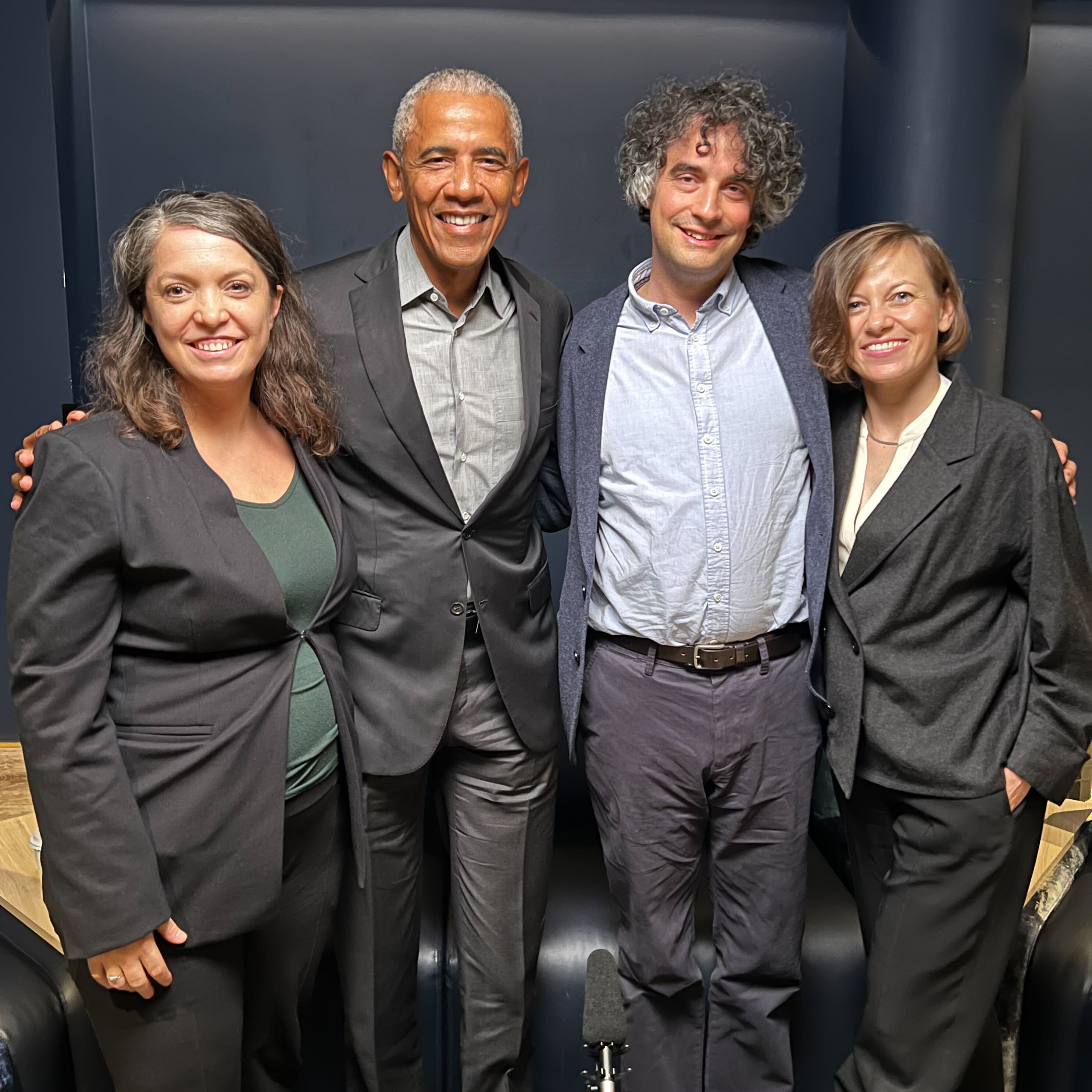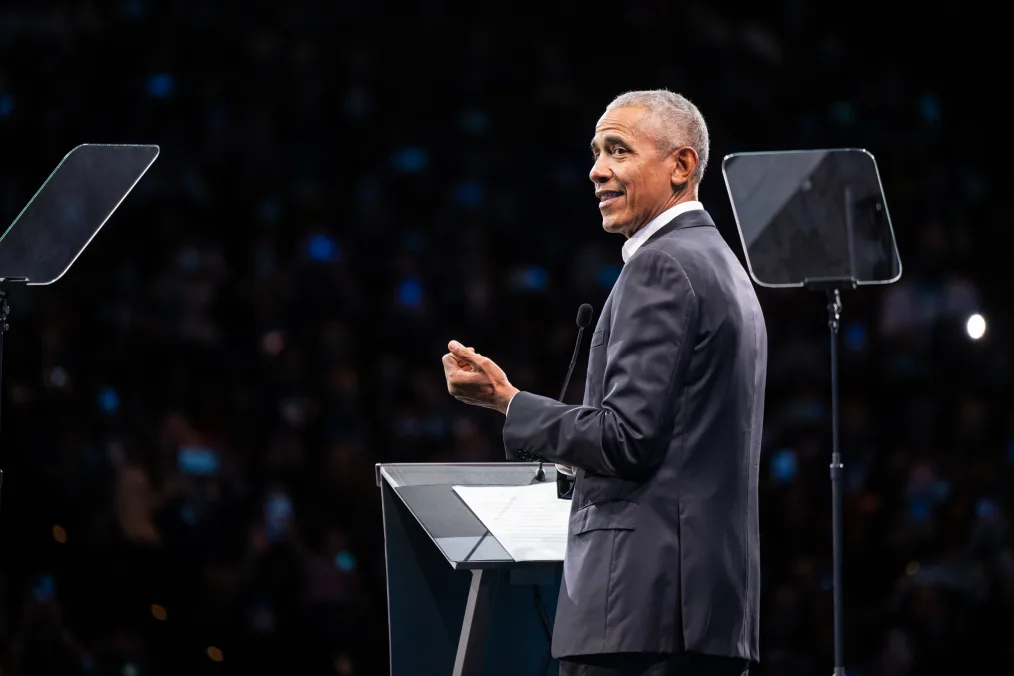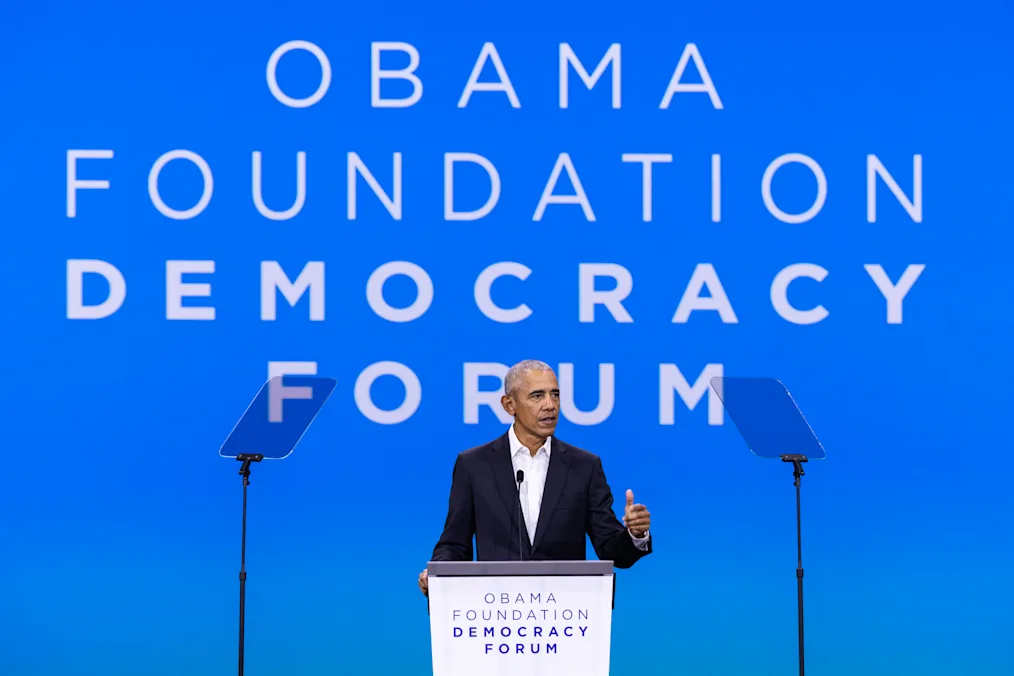President Obama explores ways to combat the rise of authoritarianism with Eastern European alumni
President Obama discussed the rise of authoritarianism with three alumni of The Obama Foundation’s leadership programs from Poland and Hungary.

President Barack Obama issued a stark warning against the rise in authoritarianism in a recent discussion with three members of the Obama Leadership Network, who are alumni of the Obama Foundation’s global leadership programs.
“I’ve become increasingly concerned about the rising wave of authoritarianism sweeping the globe,” President Obama said. “We’re seeing politicians target civil society, undermine freedom of the press, weaponize the justice system.”
“And no one is being spared,” he warned.
His comments come as the former president had a private discussion with three Obama Foundation program alumni who are working to bolster democracy in their home countries of Poland and Hungary.
Each of the alumni spoke at length with President Obama in an intimate conversation in London about their work supporting and revitalizing democracy and the struggles they’ve encountered.
“All three of you have been fighting the good fight and rising up in the face of significant challenges to try to strengthen democracy,” Obama said. “You're setting an example for all of us in the United States, here in the U.K.”
The three Obama leaders told the former President that their work to preserve and empower democracy has seen setbacks for a variety of reasons - in part because of the challenge of combatting the ability of authoritarian officials in power forcefully setting the public agenda.
“Everyone, even the media was always following them and playing according to their rules, their game,” said Sándor Léderer, a Hungary-based leader and the co-founder of K-Monitor, an anti-corruption watchdog. “Obviously in that game, they always shift the rules according to what's most favorable to them. You have a much harder time to be present or represent what you're standing for.”
Zuzanna Rudzinska-Bluszcz, the former Deputy Justice Minister for Poland, also warned citizens against the temptation to tune in to what is happening in their country only at election time.
“Democracy is something to be practiced every day or every week, regularly,” she said. “We need active citizenry.”
In spite of the challenges they face, each expressed hope as they reflected on their own experiences working with other Obama Foundation leaders and how they’ve helped create change by focusing on local issues.
“Democracy is very much about this local level and also about these microskills of cooperation, of reaching across the divide, of really speaking to people who agree on something and being able to come together and compromise,” said Stefania Kapronczay, who is developing a podcast series that offers practical guidance on city-level participatory programs.
The alumni said The Obama Foundation has helped them meet and learn from people around the world and build practical skills for their fields of work when otherwise they would have had to learn on the job.
The three program alumni that Obama met with are:
Zuzanna Rudzinska-Bluszcz served as the Deputy Justice Minister for Poland from December 2023 to August 2025. From 2015-2020, as coordinator for Strategic Litigation at the Office of the Commissioner for Human Rights, Zuzanna won more than 30 landmark civil and human rights cases, focusing especially on marginalized groups such as the LGBTQ community, migrants and refugees, and political dissidents. She was a member of the Leaders Europe 2020 cohort.
Sándor Léderer is the co-founder and director of K-Monitor, an anti-corruption watchdog working to give citizens the tools to boost transparency, democracy, and the rule of law in Hungary. His work includes maintaining public databases of spending- and corruption-related information, supporting good governance efforts at the local level, building civic tech tools to help average citizens understand and use that data, and advocating for anti-corruption reforms. He was a 2018 Obama Fellow.
Stefania Kapronczay was a human rights defender in Hungary for 20 years, serving as co-director of the Hungarian Civil Liberties Union until recently. She is currently developing a podcast series that offers practical guidance on city-level participatory programs, as well as a project that fosters cooperation among citizens by creating community-organized participatory exhibitions on local history. Stefánia was a 2024-2025 Obama Scholar.








